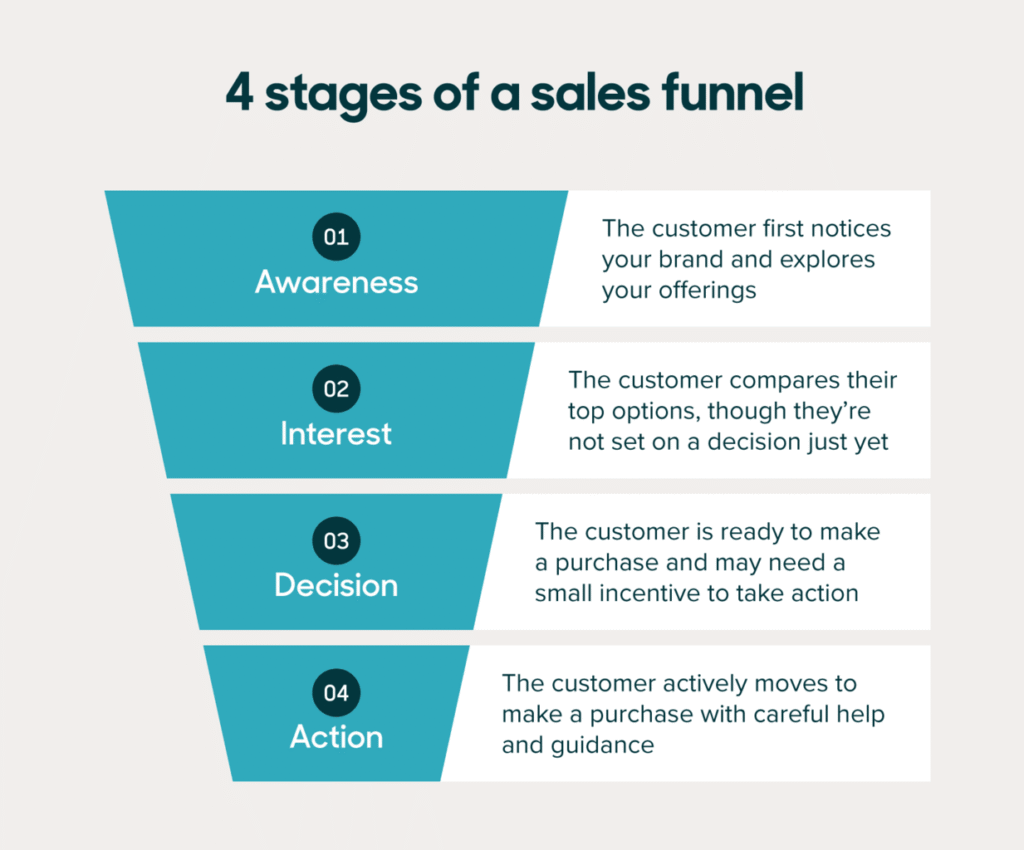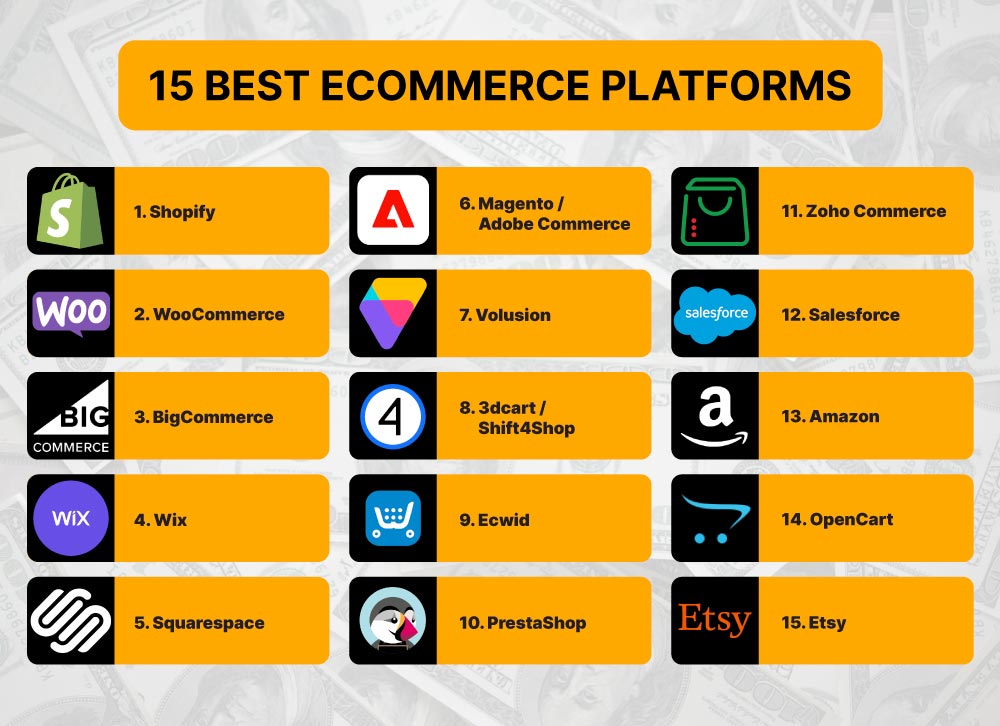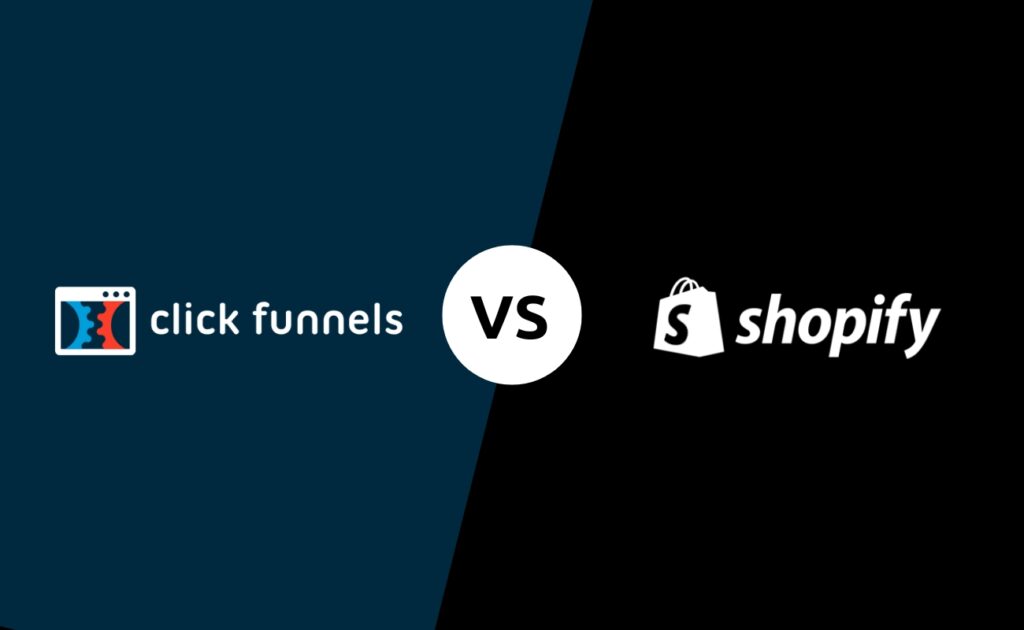ClickFunnels vs Shopify: Which Platform Is Best for Your Online Business in 2025?
Choosing the right platform can make or break my online business. With so many options out there it’s easy to feel overwhelmed. When I started searching for tools to launch and grow my store ClickFunnels and Shopify kept popping up as top contenders.
Both promise to help me sell products online but they take very different approaches. I want to make sure I’m investing my time and money in the platform that fits my goals best. So I decided to dig deep and compare ClickFunnels vs Shopify to see which one truly delivers for entrepreneurs like me.
Overview of Clickfunnels vs Shopify
ClickFunnels and Shopify target e-commerce businesses, but they serve different use cases. ClickFunnels focuses on building sales funnels that drive conversions for digital products, consulting offers, and online courses. Shopify manages online stores that sell physical goods to customers worldwide. I compare core features, pricing, and use scenarios for both platforms with a summary table for clarity.
Core Features Comparison
| Platform | Primary Use | Payment Integrations | Customization | Sales Funnel Tools | App Marketplace | Best For |
|---|---|---|---|---|---|---|
| ClickFunnels | Sales funnels | Stripe, PayPal, others | Drag-and-drop builder | Upsells, downsells | Limited | Digital products, info marketing |
| Shopify | Online storefronts | Shopify Payments, over 100 gateways | Store themes, apps | Limited to apps | Extensive | Retailers, physical product sellers |
ClickFunnels specializes in conversion-focused page workflows, including order bumps and automated follow-ups. Shopify excels in product management, inventory tracking, and scaling retail operations with robust app integrations and flexible shipping options.
Pricing Overview
| Platform | Basic Monthly Plan | Transaction Fees | Advanced Plans (Monthly) |
|---|---|---|---|
| ClickFunnels | $97 | None (from platform, but payment gateways may apply) | $297 (Platinum), $2,497 (TwoCommaClub) |
| Shopify | $39 | 2% external payment fee (waived if using Shopify Payments) | $399 (Advanced Shopify) |
Monthly costs for ClickFunnels include unlimited sales funnels and pages, which fit creators running complex marketing campaigns. Shopify’s basic plan supports full-featured webstores, with fees adjusted by the selected payment processor.
Use Cases and Business Alignment
ClickFunnels suits entrepreneurs selling single products or services who rely on step-by-step funnels to increase conversions. Shopify stands out for entrepreneurs managing multiple SKUs, requiring detailed analytics and third-party integrations for logistics, marketing, or customer service. I recommend assessing sales strategies, product types, and scalability plans when comparing these e-commerce platforms.
Key Features Comparison
Both ClickFunnels and Shopify offer distinctive features that address specific online business needs. I’ve outlined their core capabilities below to highlight contextual differences and connections.
Sales Funnel Capabilities
ClickFunnels centers on guided sales journeys designed to maximize conversions. I build multi-step funnels by combining landing pages, upsells, downsells, and order forms. A/B testing, automated follow-ups, and segmentation improve the flow for digital product sales. Shopify supports basic checkout customization with third-party apps but lacks native multi-step funnel structuring. One-page checkout, abandoned cart recovery, and simple discounts are present for physical product store optimization.
| Feature | ClickFunnels | Shopify |
|---|---|---|
| Funnel Builder | Yes (Native, multi-step) | No (Requires app) |
| A/B Testing | Yes | Limited (Requires app) |
| Upsell/Downsell Paths | Yes | No (Requires app) |
| Automated Email Sequences | Yes (Native, built-in) | Limited (Via apps) |

E-Commerce Functionality
Shopify delivers advanced e-commerce management for my online store operations. I access inventory tracking, product cataloging, SKU management, shipping settings, and order fulfillment on one dashboard. Secure payment processing, sales tax calculations, and multi-channel integrations are built-in. ClickFunnels supports digital product delivery, limited inventory controls, and basic checkout, mainly for single-offer sales.
| Feature | ClickFunnels | Shopify |
|---|---|---|
| Product Management | Basic (single/multiple) | Advanced (catalog, variants, SKU) |
| Inventory Tracking | Minimal | Robust (real-time updates) |
| Shipping Integrations | Limited | Yes (multiple providers) |
| Multi-Channel Selling | No | Yes (social, marketplaces) |

Design and Customization Options
Design tools in ClickFunnels allow me to craft conversion-optimized landing pages with simple drag-and-drop controls. Template library access is geared toward sales, lead capture, and webinar funnels. Shopify grants me complete store theme customization, product page layouts, HTML/CSS editing, and optimized themes for mobile commerce.
| Feature | ClickFunnels | Shopify |
|---|---|---|
| Theme Customization | Limited (page-focused) | Full (store-wide) |
| Template Library | Sales-focused | Multi-industry |
| Drag-and-drop Builder | Yes | Yes |
| Mobile Responsiveness | Yes | Yes |
Integrations and Apps
ClickFunnels supports marketing automation integrations for CRM, email, and payment gateways. I sync with platforms like MailChimp, Stripe, and Salesforce. Shopify grants access to over 8,000 apps through its App Store, supporting payment processors, dropshipping, accounting, and analytics solutions.
| Category | ClickFunnels Integrations (Examples) | Shopify Apps & Integrations |
|---|---|---|
| Email Marketing | MailChimp, ActiveCampaign | Klaviyo, Omnisend |
| Payments | Stripe, PayPal | Shopify Payments, Apple Pay |
| CRM | Salesforce, HubSpot | HubSpot, Zoho CRM |
| Other | Zapier, WebinarJam | Oberlo, ShipStation, QuickBooks |
Pricing and Value for Money
Pricing differences influence my decision when comparing ClickFunnels and Shopify. Both platforms target distinct user groups and offer separate value points across their subscription plans and add-on costs.

Subscription Plans
ClickFunnels and Shopify configure plans for different online business needs. ClickFunnels mainly targets conversion and funnel building, while Shopify specializes in full-scale online store setup.
| Platform | Basic Plan (Monthly) | Standard Plan (Monthly) | Premium Plan (Monthly) | Free Trial |
|---|---|---|---|---|
| ClickFunnels | $97 | $197 | $297 | 14 days |
| Shopify | $39 | $105 | $399 | 3 days |
ClickFunnels includes funnel pages, email automation, and analytics at all pricing levels. Shopify comes with inventory management, website hosting, and multi-channel sales as part of each core plan.
Additional Costs
Additional costs impact overall value for money across these e-commerce platforms. ClickFunnels charges no transaction fees, with the total cost based on the selected plan. Shopify applies transaction fees (2% for third-party gateways) unless I use Shopify Payments, which eliminates this fee.
Shopify’s app ecosystem often drives extra ongoing charges, with popular apps (like email marketing or review systems) ranging from $5 to $50 per month. ClickFunnels users rarely incur extra charges unless scaling to higher plan tiers or connecting third-party automation tools.
| Platform | Transaction Fees | App Integration Fees | Custom Domain |
|---|---|---|---|
| ClickFunnels | $0 | Mostly included, some extra | Yes |
| Shopify | Up to 2% (non-Shopify Payments) | App fees apply | Yes |
ClickFunnels and Shopify both require a custom domain purchase if not already owned, usually $10–$15 per year.
No casino-specific pricing or integrations directly connect to ClickFunnels or Shopify core offerings.
Ease of Use and Customer Support
ClickFunnels and Shopify approach usability and support with distinct priorities. I compare their user experience and available support resources to clarify what each platform offers.
User Experience
ClickFunnels builds its interface for quick funnel creation. I use a drag-and-drop builder to assemble pages, add upsells, and automate follow-ups. Tutorials and tooltips guide each step, with minimal setup for digital or info product funnels.
Shopify structures its dashboard around managing online stores. I navigate product catalog management, inventory, and multi-channel integrations in a centralized workspace. Storefront customization uses a visual theme editor for real-time changes, and onboarding wizards streamline store launch tasks.
Platform Navigation Comparison
| Platform | Onboarding Time (avg) | Visual Design | Setup Focus | Target User |
|---|---|---|---|---|
| ClickFunnels | <30 minutes | Funnel-oriented | Sales funnel organization | Marketers, coaches |
| Shopify | 30–60 minutes | Storefront | Product and inventory | Merchants, retailers |
Support Resources
ClickFunnels provides live chat, a searchable knowledge base, and step-by-step tutorials. I access video guides, a community forum, and email support on all plans. Priority support comes with higher tiers or the Two Comma Club plan.
Shopify offers 24/7 live chat, email, and phone support. I use detailed documentation, Shopify Academy courses, and a vast community forum. Advanced support, such as dedicated account management, unlocks on Shopify Plus plans.
Support Channel Availability
| Platform | Live Chat | Phone | Help Center | Community Forum | Tutorials | |
|---|---|---|---|---|---|---|
| ClickFunnels | Yes | Yes | No | Yes | Yes | Yes (video/text) |
| Shopify | Yes (24/7) | Yes | Yes | Yes | Yes | Yes (video/text) |
I see both platforms offer extensive resources, but Shopify leads for global and around-the-clock support, while ClickFunnels centers its support model on marketers needing fast troubleshooting within funnel flows.
Pros and Cons of Clickfunnels and Shopify
When comparing ClickFunnels and Shopify, I find distinct strengths and drawbacks for each platform based on their primary focus, features, and user experience.
Clickfunnels Pros and Cons
ClickFunnels streamlines the process of building sales funnels with tools that target conversion optimization.
Pros
- Funnel-Centric Structure: ClickFunnels specializes in multi-step sales funnels, ideal for single-product strategies and digital product launches.
- Integrated Automation: I can use built-in email marketing, upsell flows, and split testing without external software.
- Conversion Optimization: Pre-built templates and analytics simplify maximizing average order value.
- No Platform Transaction Fees: ClickFunnels doesn’t charge transactions fees on sales, reducing total costs for high-volume funnels.
Cons
- Limited E-commerce Features: Product management, inventory, and shipping functions aren’t as advanced as Shopify’s.
- Fewer Integrations: Fewer third-party apps are available compared to Shopify’s ecosystem, limiting extended functionalities.
- Higher Starting Price: The starting plan is $97/month, higher than Shopify’s lowest tier.
Shopify Pros and Cons
Shopify excels at managing online stores for physical goods across multiple sales channels.
Pros
- Robust Store Management: Shopify’s inventory, order tracking, and shipping integrations suit multi-product retailers.
- Scalable App Ecosystem: Access to over 8,000 apps enables extensive shop customization, including marketing, shipping, and accounting.
- Multi-Channel Selling: Native integrations with Facebook, Instagram, Amazon, and more expand reach.
- Broad Payment Options: Comprehensive payment gateway support, including Shopify Payments and third-party processors.
Cons
- Transaction Fees: Third-party payment gateways incur 2% fees if I don’t use Shopify Payments.
- Funnel Complexity: Advanced funnel creation isn’t native, requiring extra apps or manual setup.
- Monthly App Costs: Relying on paid apps can increase total monthly expenses quickly.
Side-by-Side Comparison Table
| Feature | ClickFunnels | Shopify |
|---|---|---|
| Primary Use | Sales funnels & digital offers | Full online store & inventory |
| Starting Price (Monthly) | $97 | $39 |
| Transaction Fees | None | 2% (external gateways) |
| Digital Product Delivery | Built-in | Via apps |
| Inventory Management | Basic | Advanced |
| Funnel Templates | Extensive | Limited (via apps) |
| Email Marketing | Integrated | Via apps |
| App Marketplace Size | Under 200 | Over 8,000 |
| Multi-Channel Selling | Limited | Extensive |
| Support Channels | Live chat, tutorials | 24/7, forums, live chat |
All features connect back to making a data-driven decision for entrepreneurs comparing online business platforms like ClickFunnels and Shopify. No casino-specific heading fits logically with the current topic and context.
Which Platform Is Best for Your Business?
Platform selection depends on business goals, sales strategies, and product focus. I compare ClickFunnels and Shopify across core factors to help guide your decision.
Platform Suitability by Business Model
| Platform | Best For | Example Uses |
|---|---|---|
| ClickFunnels | Digital products, webinars, lead generation, info products | E-books, coaching, online courses |
| Shopify | Physical products, inventory management, retail | Apparel, electronics, accessories |
ClickFunnels suits businesses optimizing for conversion-driven funnels or high-ticket services, if rapid lead capture or digital delivery matters. Shopify matches brands managing a broad inventory and selling across multiple channels.
Feature Prioritization Table
| Feature Category | ClickFunnels | Shopify |
|---|---|---|
| Funnel Creation | Built-in, drag-and-drop | Available via third-party apps |
| Inventory Management | Limited | Advanced |
| Multi-channel Sales | Basic | Extensive |
| App Ecosystem | Select integrations | 8,000+ apps |
| Payment Processing | Stripe, PayPal | 100+ gateways |
If core features like inventory tracking and shipping are a priority, Shopify offers more robust functionality. If guided buying experiences drive growth, ClickFunnels simplifies funnel design.
Price and Fee Table
| Platform | Basic Monthly Fee | Transaction Fee* | Inclusions |
|---|---|---|---|
| ClickFunnels | $97 | None | Funnels, automation, analytics |
| Shopify | $39 | 2% (non-Shopify Payments) | Storefront, inventory, multi-channel sales |
*Shopify removes transaction fees if using Shopify Payments.
Pricing structures impact profit margins. ClickFunnels carries a higher base fee but no transaction costs, whereas Shopify may introduce additional fees with app addons or payment provider choices.
Support and Usability
ClickFunnels offers a guided setup, quick funnel deployment, and centralized analytics, if launch speed is critical. Shopify provides extensive documentation and 24/7 support for complex inventory or scaling needs.
When to Choose ClickFunnels or Shopify
- I choose ClickFunnels for online courses, webinars, or one-product funnels where buyer journeys and conversions matter most.
- I choose Shopify if managing a growing catalog, fulfilling physical goods, or needing advanced order and inventory control.
Each platform excels in unique contexts, so alignment with my core sales activities and product types determines which option powers my business most effectively.
Conclusion
Choosing between ClickFunnels and Shopify comes down to knowing exactly what your business needs. I always recommend taking a close look at your sales process and the type of products you’re selling before making a decision.
Both platforms offer powerful tools but serve very different purposes. When I align my choice with my business model and future goals I find it much easier to build a solid foundation for growth and success.